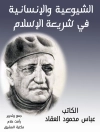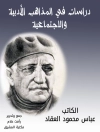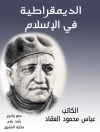What is to be done at the end of metaphysics? Joeri Schrijvers’s contemporary philosophy of religion takes up this question, originally posed by Reiner Schürmann and central to continental philosophy. The book navigates the work of thinkers who have addressed such metaphysical concerns, including Martin Heidegger, Emmanuel Levinas, Jean-Luc Nancy, Jean-Luc Marion, Peter Sloterdijk, Ludwig Binswanger, Jacques Derrida, and more recently John D. Caputo, Mary-Jane Rubenstein, and Martin Hägglund. Notably, Schrijvers engages both those who would deconstruct Christianity and those who remain within this tradition, offering an option that is ‘between:’ between Christianity and atheism, between progressive and conservative, between faith and belief. Ultimately, Schrijvers confronts the end of metaphysics with a phenomenology of love and community, arguing for the radical primacy of togetherness.
Tabla de materias
Acknowledgments
Introduction
General Introduction: Toward A Contemporary Phenomenology of Religious Life: Contours and Contexts
The Many Faces of Atheism Today “Against the Return of Religion: A Critique of the Religious Origins of our Political Concepts”
Jean-Luc Nancy and
Peter Sloterdijk
“A Universalizing Faith at the Origin of the Social Bond: Postsecularism As a Secularizing Task”
Ludwig Binswanger
“A Recognition of the Elementary Faith Underlying the Secularizing Task”
John D. Caputo
Conclusion: Toward A Contemporary Phenomenology of Religious Life
Part I. Without
1. Anarchistic Tendencies in Contemporary Philosophy: Reiner Schürmann and the Hubris of Philosophy
“What is to be done at the end of metaphysics?”
Heideggerian Anarchy
Levinasian Anarchy
Derridean Anarchy
Conclusion: In Praise of Everydayness
2. What Comes after Christianity? Jean-Luc Nancy’s Deconstruction of Christianity
The End of Metaphysics and the Deconstruction of Christianity
Thinking the World: Between Heidegger and Levinas
The Deconstruction of Christianity
Nancy’s Exegesis of the Resurrection Story:
Noli me Tangere and the Faith in Sense
Deconstructing Nancy with Derrida
Conclusion: What Comes after Christianity?
3. Exercises in Religion I: Peter Sloterdijk and the Matrix of Monotheism
How to Change Your Life: An Ontological Self-Help Group
Once Again: Violence and Metaphysics
The De-suprematicization of the World: The Matrix of Monotheism
An Exhausted Matrix?
Conclusion: Sloterdijk and “The Legitimacy of Postmodernity”
4. Exercises in Religion II. Living with Exhaustion
Modernity and the Emergence into History
Postmodern Life: Ascetic, Aesthetic, and Athletic Religion
Life, and Nothing but Life: The Liberation from the Matrix?
Changing Codes
Conclusion: Deconstructing Christianity?
Conclusion to Part 1
Part II. Between
5. In Defense of Deconstruction. John D. Caputo and His Critics
How (Not) to Do Away With “The With”?
Religion without Religion versus Religion with Religion
Mind the Gap! Of Unconditionals and Their Condition
Conclusion: Begging to Differ
6. Between Faith and Belief: Derrida versus Caputo
The Event of Religion
Prayers, Tears, and Gnashing of Teeth: On Attempting to be an Atheist
Derrida as Natural Metaphysician: The Pervertibility of Pure Faith
The Aporia, and the Great Unknown: God
Conclusion: Between Faith and Belief
7. Between Strong and Weak Theology: Of a Sacred Anarchy in Caputo and Marion
A Christian Reversal of Values
A Sacred Anarchy, or the Authority of Authorities
From Caputo to Marion: Abandoned to Love?
Conclusion: Between Phenomenology and Theology
Conclusion to Part 2
Facere Veritatem: The Primacy of Bad Conscience
Not Yet Rid of God? Of a Religion Not Quite without Religion
Part III. Within
8. Ludwig Binswanger’s Phenomenology of Love
Greetings from Being
Phenomenology of Love
Toward an Ontology Incarnate: The Fullness of Being
Conclusion: Faith in Love
9. The “Ends” of Love: Friendship, Death, and Care
Heidegger and Binswanger
The “Unfolding” of Love in the World: Toward a
Liebende Sorge
Love, Language, and Community
Phenomenology of Friendship‒The Death of Friends and Lovers
The Self between Love and World
Conclusion: Loving Life and Living Love
10. From Love to Life (and Back Again)
The Knowledge of Love
Body and World: Onward and Upward
The Art of a Difficult Existence: Binswanger’s
Ibsen
Binswanger, Art, and the Phenomenology of Religious Life
Conclusion: From a Finite Life to the Infinity of Love
Conclusion to Part 3
General Conclusion
Phenomenology of Religious Life
A Phenomenology of
Religious Life
Notes
Bibliography
Index
Sobre el autor
Joeri Schrijvers is Visiting Professor at the Faculty of Theology and Religious Studies at Katholieke Universiteit Leuven. He is the author of
Ontotheological Turnings? The Decentering of the Modern Subject in Recent French Phenomenology, also published by SUNY Press.












